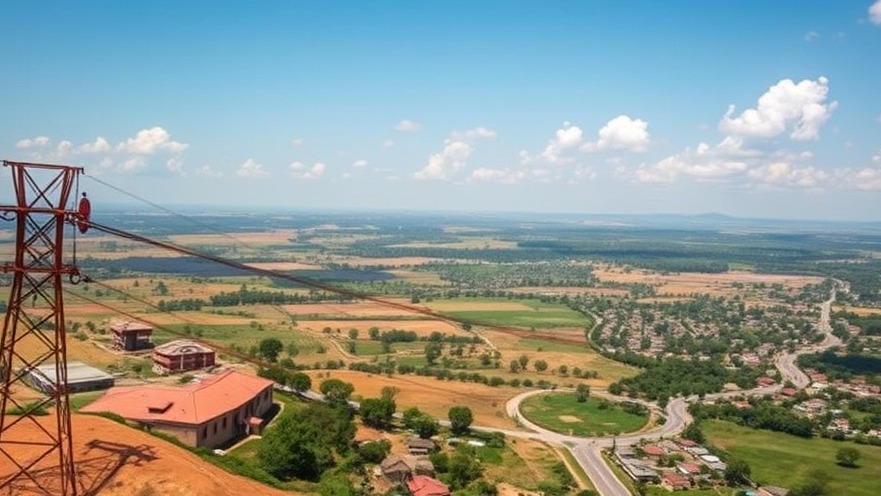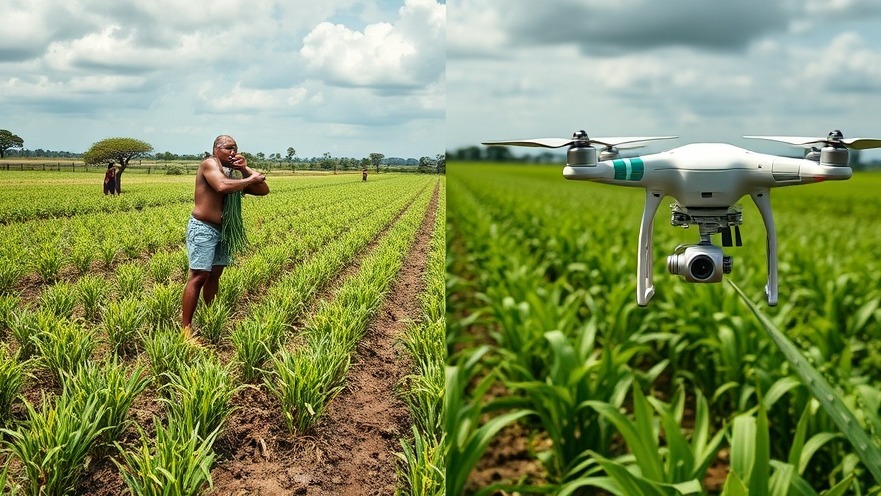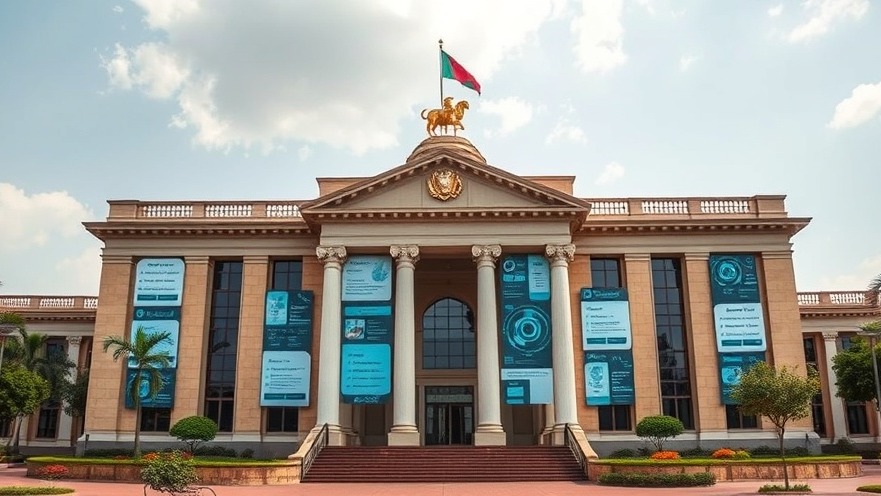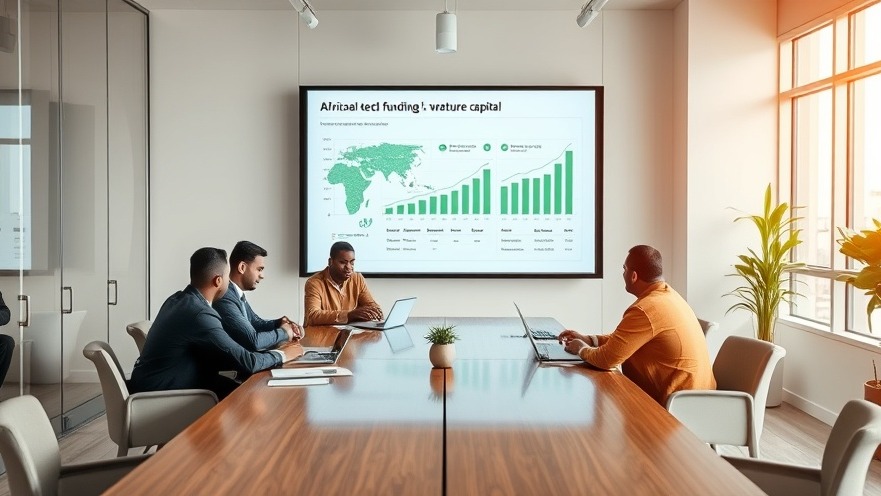The Great Digital Divide: Where East Africa Stands in the Global Tech Race

The morning sun rises over a futuristic Nairobi's bustling tech hub, where a paradox unfolds daily. In gleaming glass towers, fintech startups process millions of mobile money transactions, while just kilometers away, traditional businesses struggle to implement basic digital payment systems. This stark contrast embodies East Africa's complex relationship with emerging technology a region simultaneously leading global innovation in mobile financial services while grappling with fundamental digital infrastructure challenges.
As artificial intelligence reshapes industries worldwide and digital solutions become the cornerstone of competitive advantage, East African businesses face a defining moment. The question isn't whether digital transformation will happen, it's whether local enterprises can position themselves as leaders rather than followers in this technological revolution.
Beyond Mobile Money: The Next Wave of Digital Innovation

East Africa's digital journey began with a leapfrog moment that stunned the world. M-Pesa's launch in Kenya didn't just create a mobile payment system it established a template for how emerging markets could bypass traditional infrastructure limitations through innovative technology adoption. Today, the region processes more mobile money transactions than anywhere else globally, demonstrating an inherent capacity for digital innovation that extends far beyond payment systems.
However, the current technological landscape demands more sophisticated responses. Artificial intelligence, machine learning, blockchain technology, and advanced data analytics represent the new frontier. These technologies require not just adoption but integration into core business strategies, workforce development, and customer engagement models.
The businesses thriving in this environment share common characteristics: they view technology not as a cost center but as a strategic differentiator. They invest in understanding customer behavior through data analytics, automate routine processes to focus human talent on creative problem-solving, and use AI to predict market trends and optimize operations.
The Infrastructure Reality: Challenges and Creative Solutions

While discussing digital readiness, addressing the elephant in the room becomes essential: infrastructure limitations remain significant barriers to comprehensive digital transformation. Internet penetration, while growing rapidly, still faces challenges in rural areas. Power reliability affects data center operations and consistent connectivity. These realities shape how businesses approach technology adoption.
Yet East African entrepreneurs have consistently demonstrated remarkable creativity in navigating infrastructure constraints. Solar-powered internet kiosks extend connectivity to remote regions. Edge computing solutions reduce dependence on centralized data centers. Hybrid online-offline business models ensure continuity during connectivity disruptions.
The most successful digital transformations in the region acknowledge these constraints while designing solutions that work within existing limitations. Rather than waiting for perfect infrastructure, forward-thinking businesses build adaptive systems that improve as infrastructure develops.
Workforce Evolution: The Human Side of Digital Transformation

Technology adoption succeeds or fails based on human capability. East Africa's demographic advantage—a young, increasingly educated population provides tremendous potential for digital workforce development. However, the region also faces a critical skills gap between traditional education systems and the competencies required for AI-powered businesses.
Progressive companies are addressing this challenge through innovative approaches to talent development. Some partner with universities to create specialized curricula. Others establish internal academies that combine technical training with practical application. The most successful integrate continuous learning into their organizational culture, recognizing that technological change requires ongoing skill development.
The emergence of coding bootcamps, online learning platforms, and tech-focused educational initiatives across major East African cities indicates growing recognition of this need. Countries like Rwanda have made coding a mandatory subject in schools, while Kenya's Silicon Savannah continues attracting international tech companies seeking skilled talent.
Sectoral Transformation: Where AI is Making the Biggest Impact

Digital transformation manifests differently across East Africa's diverse economic sectors. In agriculture, the region's economic backbone, precision farming technologies, satellite imagery for crop monitoring, and AI-powered market price predictions are revolutionizing operations. Farmers who previously relied on seasonal patterns and traditional knowledge now access real-time data about soil conditions, weather patterns, and optimal planting times.
Healthcare represents another frontier where digital solutions address critical needs. Telemedicine platforms extend specialist care to remote areas. AI diagnostic tools help overcome physician shortages. Digital health records improve treatment continuity and enable population health analysis.
Financial services continue leading innovation, moving beyond basic mobile money to sophisticated lending algorithms, insurance products, and investment platforms. These services often serve as training grounds for broader digital literacy, as customers become comfortable with app-based interfaces and digital transactions.
Manufacturing and logistics sectors increasingly adopt IoT sensors for supply chain optimization, predictive maintenance systems, and automated inventory management. These applications often provide immediate ROI, making them attractive entry points for traditional businesses beginning digital transformation journeys.
The Competitive Landscape: Local Champions vs Global Giants

East African businesses operate in an increasingly competitive environment where global technology giants offer sophisticated solutions often at subsidized rates. Amazon Web Services, Google Cloud, and Microsoft Azure provide infrastructure capabilities that would be prohibitively expensive for local companies to develop independently.
However, local businesses possess advantages that global players struggle to replicate: deep understanding of local markets, cultural nuances, regulatory environments, and customer behaviors. The most successful regional companies leverage global platforms while building uniquely local solutions.
This dynamic creates opportunities for strategic partnerships where East African businesses access advanced technology infrastructure while maintaining control over customer relationships and local market expertise. Companies that successfully navigate this balance often outperform both purely local and purely global competitors.
Regulatory Environment: Balancing Innovation with Protection

Government policies significantly influence digital readiness across East Africa. Progressive regulatory frameworks encourage innovation while protecting consumers and ensuring fair competition. Kenya's sandbox approach for fintech testing, Rwanda's emphasis on digital infrastructure development, and Uganda's growing support for technology education demonstrate how policy can accelerate digital adoption.
However, regulatory uncertainty in some areas creates hesitation among businesses considering significant technology investments. Data protection laws, cross-border payment regulations, and AI governance frameworks remain evolving areas where businesses need clear guidance to plan long-term digital strategies.
The most digitally ready businesses actively engage with policy development processes, recognizing that regulatory clarity benefits entire ecosystems. They also build flexible systems capable of adapting to changing regulatory requirements without compromising core functionality.
Success Stories: East African Digital Pioneers

Several East African businesses exemplify successful digital transformation, offering models for others to emulate. These companies share common approaches: they started with clear customer problems, used technology to create solutions rather than implementing technology for its own sake, and built scalable systems that could grow with their businesses.
In logistics, companies like Sendy have revolutionized last-mile delivery through mobile platforms that connect drivers with customers while optimizing routes through AI algorithms. Their success demonstrates how local businesses can use technology to compete with global logistics giants.
In agriculture, platforms like iCow provide farmers with AI-powered advisory services through SMS and mobile apps, proving that sophisticated technology can be accessible through simple interfaces. These solutions often achieve higher adoption rates than more complex alternatives because they respect existing user behaviors while introducing incremental improvements.
Financial services continue producing innovation leaders like Tala and Branch, which use alternative data sources and machine learning to provide credit to previously underserved populations. Their success illustrates how AI can address social challenges while building profitable businesses.
The Investment Landscape: Funding Digital Transformation

Access to capital for digital transformation varies significantly across East Africa. While major tech hubs like Nairobi and Kigali attract substantial venture capital investment, smaller businesses in secondary cities often struggle to access funding for technology upgrades.
This disparity creates opportunities for innovative financing models. Some successful companies use revenue-sharing agreements with technology providers, spreading costs over time while demonstrating ROI. Others leverage government and development organization grants designed to support digital adoption in key sectors.
The emergence of local venture capital funds and impact investors focused on African markets provides new options for growth-stage companies. However, early-stage businesses still often rely on bootstrapping and creative resource allocation to fund initial digital transformation efforts.
Looking Forward: Preparing for an AI-Driven Future

The next phase of digital evolution in East Africa will likely center around artificial intelligence integration at scale. This transition requires businesses to move beyond basic digitization toward intelligent automation, predictive analytics, and autonomous decision-making systems.
Preparing for this future demands strategic thinking about data collection and management, as AI systems require high-quality datasets to function effectively. Companies beginning this journey often start with customer data analytics before expanding to operational optimization and predictive modeling.
The businesses best positioned for this transition are those building data-driven cultures today, investing in employee digital literacy, and maintaining flexible technology architectures that can incorporate new capabilities as they become available and affordable.
Frequently Asked Questions: East Africa's Digital Readiness
What are the biggest barriers to AI adoption for East African businesses?
The primary barriers include limited technical expertise, inadequate data infrastructure, inconsistent internet connectivity, and lack of clear ROI models for AI investments. However, creative solutions like cloud-based AI services, partnerships with technology providers, and phased implementation approaches are helping businesses overcome these challenges.
How can small businesses compete with large corporations in digital transformation?
Small businesses often have advantages in agility, customer proximity, and decision-making speed. They can adopt emerging technologies faster than large corporations and create more personalized customer experiences. Success often comes from focusing on specific niches where local knowledge and quick adaptation provide competitive advantages.
What skills should East African professionals develop to remain relevant in an AI-driven economy?
Critical skills include data analysis, digital marketing, customer experience design, and basic understanding of AI applications in business contexts. However, uniquely human skills like creative problem-solving, cultural intelligence, and relationship building become more valuable as routine tasks become automated.
The Path Forward: Building Digital Resilience
East Africa's digital readiness journey reflects broader themes about adaptation, innovation, and resilience in the face of rapid technological change. The region's businesses face the challenge of simultaneously catching up with global digital standards while positioning themselves for future technological disruptions.
Success in this environment requires balancing ambitious vision with practical constraints, leveraging global platforms while maintaining local relevance, and building capabilities that can evolve with changing technology landscapes.
The businesses that will thrive are those viewing digital transformation not as a destination but as an ongoing journey of learning, adaptation, and strategic innovation. They recognize that in an era of constant technological change, the ability to learn and adapt becomes more valuable than any specific technology or platform.
As East Africa continues its digital evolution, the question isn't whether businesses will need to transform, it's whether they'll lead that transformation or be transformed by it. The choice, and the opportunity, remains in their hands.
This analysis is part of Experts Nexus Exchange's ongoing coverage of technological transformation across East Africa. For more insights on digital innovation and business strategy in the region, visit AI Africa News Channel at https://AIAfricaNews.com
 Add Row
Add Row  Add
Add 



 Add Row
Add Row  Add
Add 

Write A Comment